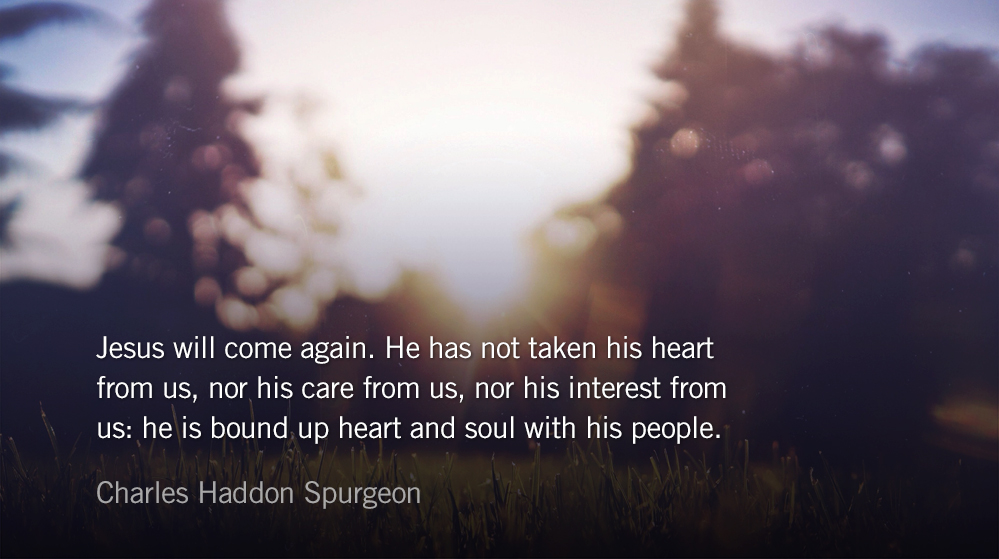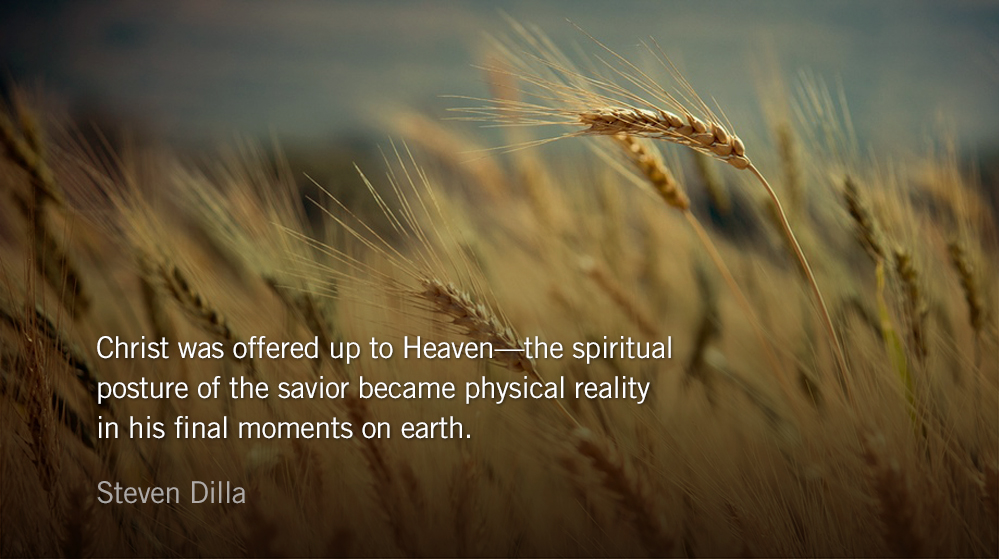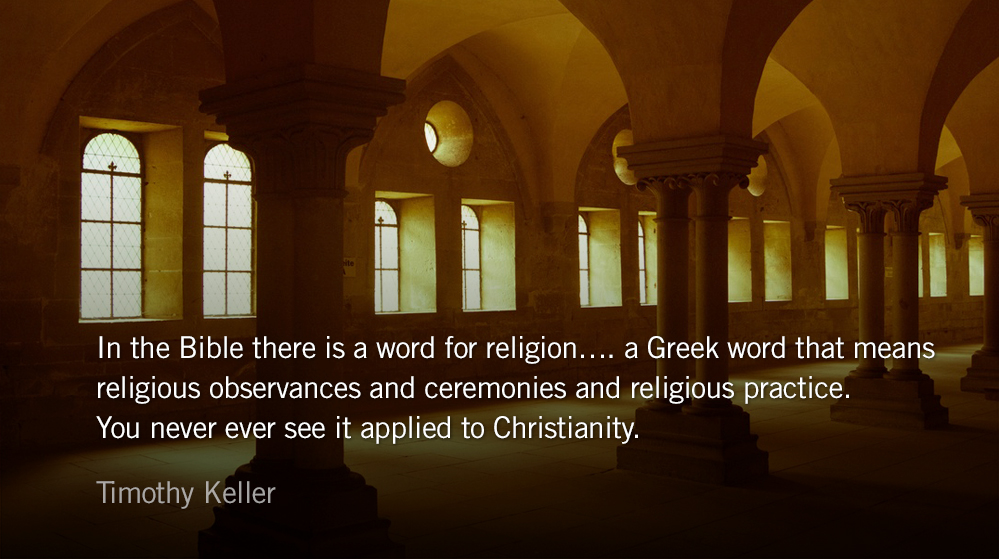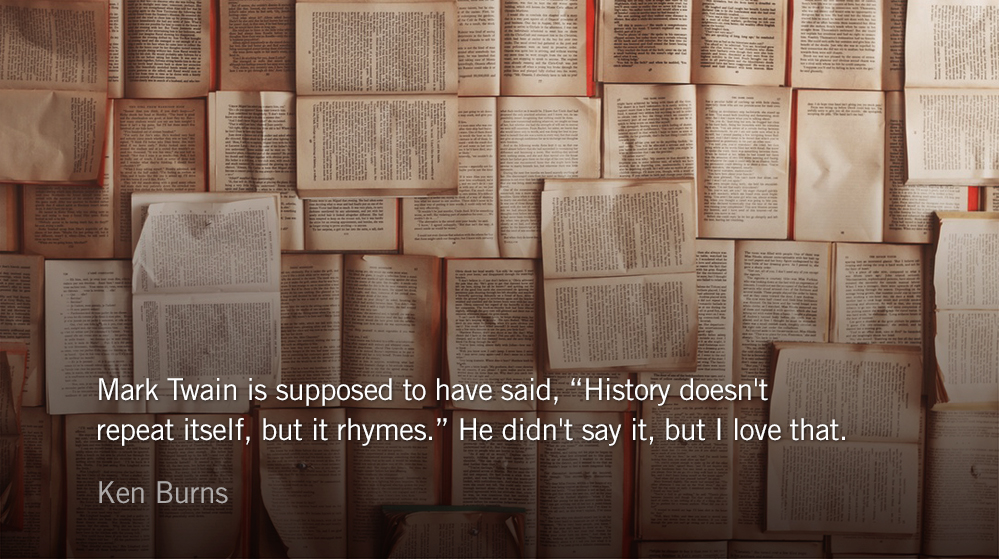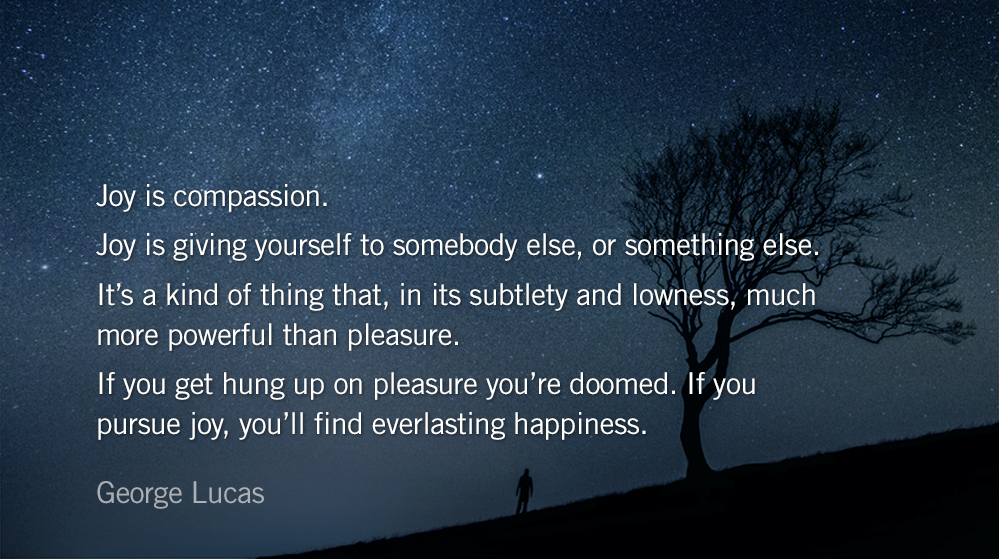“A lot of people seem to feel that joy is only the most intense version of pleasure, arrived at by the same road—you simply have to go a little further down the track, ” observes Zadie Smith. The author confesses, “That has not been my experience.”
Joy, in many Christian circles, has been wrongly placed in contrast to happiness. The result of this false dichotomy, Randy Alcorn points out, is a distorted view that removes joy from the emotional spectrum and secularizes happiness. “Our message shouldn’t be ‘Don’t seek happiness,’” Alcorn remarks, “but ‘You’ll find in Jesus the happiness and joy you’ve always longed for.’”
As a fruit of the Spirit, joy is given from God, simultaneously with self discipline and patience. In other words, delaying gratification doesn’t diminish the joy of God. True joy requires sacrifice. It reaches beyond pleasure and taps into something much deeper. The most talented storytellers in our culture have recognized this—noting how different joy is from the reckless pursuit of pleasure that marks our material world. Filmmaker George Lucas explains:
Joy is the thing that doesn’t go as high as pleasure—in terms of your emotional reaction—but, it stays with you. Joy is something you can recall, pleasure you can’t. The secret is, that even though it’s not as intense as pleasure, the joy will last you a lot longer.
If you’re trying to sustain that level of peak pleasure, you’re doomed. It’s a very American idea. Joy lasts forever, pleasure is purely self-centered. It’s all about your pleasure—it’s about you. It’s a selfish, self-centered emotion. It’s created by a self-centered motive of greed.
Joy is compassion. Joy is giving yourself to somebody else, or something else. It’s a kind of thing that, in its subtlety and lowness, much more powerful than pleasure. If you get hung up on pleasure you’re doomed. If you pursue joy, you’ll find everlasting happiness.
When we think of the fruit of the Spirit as the transferable attributes of God—those divine characteristics which shape our lives as we live in sync with the Spirit—it becomes clear human beings were created for joy. Scripture reveals that anything we are created to receive from God we will attempt to counterfeit—to become our own god as we provide for ourselves.
Marijuana, alcohol, adventure sports, sex, and so many other little things bring us right to the outside edges of joy. We taste, if only for a moment, the glory of creation. And because pleasure is so short lived and so soon forgotten we want more. We need more. In trying to pin down a definition of joy for her piece in The New York Review of Books, Zadie Smith looks back to her drug use in the London club scene:
Was that joy? Probably not. But it mimicked joy’s conditions pretty well…. The thing no one ever tells you about joy is that it has very little real pleasure in it.
We can’t counterfeit true joy. Commenting on Smith’s experience, Alex Bayer observes, “static pleasure precludes the chance of achieving joy.” What we see—in Christ’s life, sacrifice, death, and resurrection—is that joy is found not in the flickers of earthly pleasure, but the eternal glory of God. One of Jesus’ shortest parables, then, is a story about joy—and how we find it in the happy forfeiture of this life’s meaningless pleasures:
The kingdom of heaven is like treasure hidden in a field, which a man found and covered up. Then in his joy he goes and sells all that he has and buys that field.
Joy is not contrast to happiness, but to grief. We know this, deep down—if nothing else from the depth of these two emotions. We know this from the low-level grief we carry with us in a broken world. Joy is a fruit of the Spirit because it only comes as God re-enters the world from which sin kicked him out. He came and wept with us so that we might rejoice for all of eternity with him.
Grief today is but a sign of the glory to come. Likewise, the joy we find relinquishing our pursuit of daily pleasure for a greater joy is a testimony of what lies ahead. Smith concludes:
The writer Julian Barnes, considering mourning, once said, “It hurts just as much as it is worth.” The end of a pleasure brings no great harm to anyone, after all, and can always be replaced with another of more or less equal worth.
Weekend Reading List
Today’s Reading
Song of Solomon 4 (Listen – 2:46)
Hebrews 4 (Listen – 2:43)
This Weekend’s Readings
Song of Solomon 5 (Listen – 2:43) Hebrews 5 (Listen – 1:57)
Song of Solomon 6 (Listen – 1:48) Hebrews 6 (Listen – 2:58)


